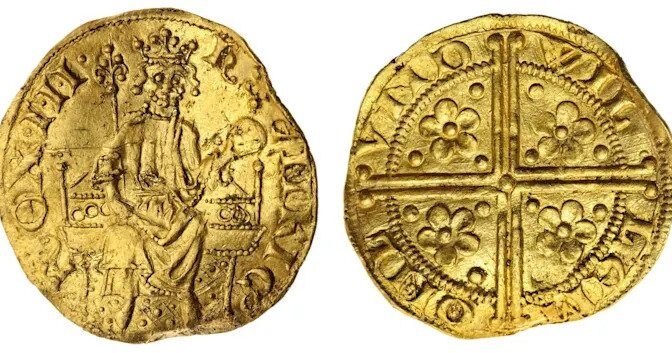3-3 minutes 2/8/2022

When his children were born, Michael Leigh-Mallory gave up his passion for metal detecting. Now, 10 and 13, they encouraged him to take up the hobby again. On the first day he used his new metal detector, he found the oldest gold coin in England, dating back to the 13th century.
“The day after it arrived, I went out into this field. It was a bright, sunny day, and within 15 minutes, I found the coin. I knew it was gold, but I had no idea how important it was,” Leigh-Mallory told The Guardian.
The 52-year old ecologist and amateur historian had dug up the rare gold penny as it glistened in a field in Devon, South West England, and was advised to take it to the British Museum.

It was discovered to be one of only eight in existence, and the last one was found 260 years ago, according to The Metro.
The coin, made from North African gold, was minted in the reign of Henry III, who was the English king between 1217-72.

Not only did it bring immense joy to Leigh-Mallory and his family, but also a record-breaking hammer price of £540,000 – with extra fees taking the total £648,000 ($878,778) – when the coin was sold at Spink and Sons auctioneers in London, last week.
Spink told Insider that the sale price made it the most valuable coin ever sold in the UK. A private collector bought it, say reports.

“It is quite surreal, really,” Leigh-Mallory told the paper. “I’m just a normal guy who lives in Devon with his family, so this really is a life-changing sum of money which will go towards their futures.”
In a statement to Insider, Leigh-Mallory said that he is “humbled and honoured to be linked with the discovery and subsequent history afforded to us by the staggering research undertaken by Spink and the wider academic community about this coin.”
He will split the profits of the find with the landowner. “The money will be put towards my children’s future, who show the same passion for our history as me. In fact, I really owe it to them for having found the coin in the first place, as they were my inspiration to go out prospecting,” Leigh-Mallory added.





